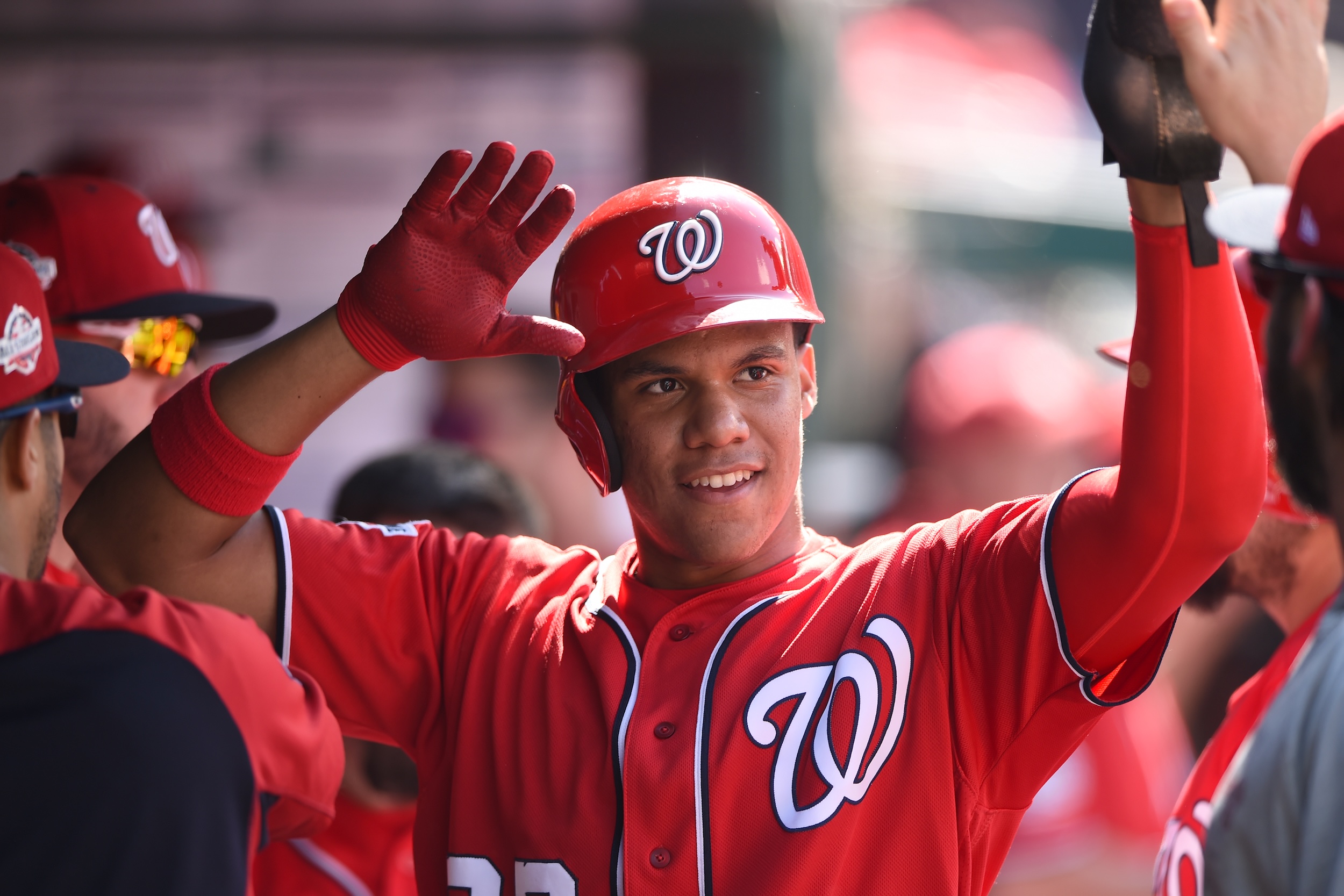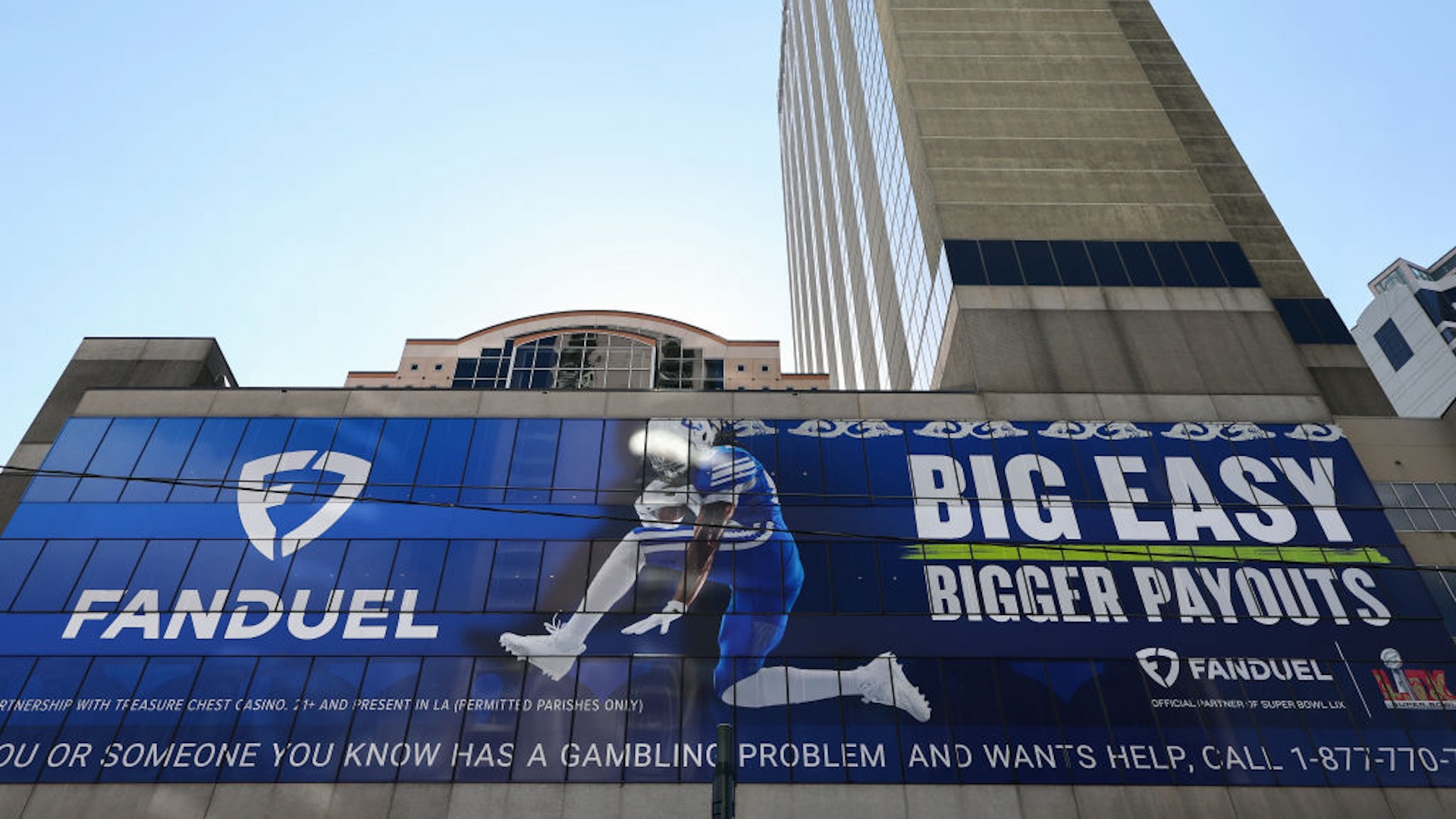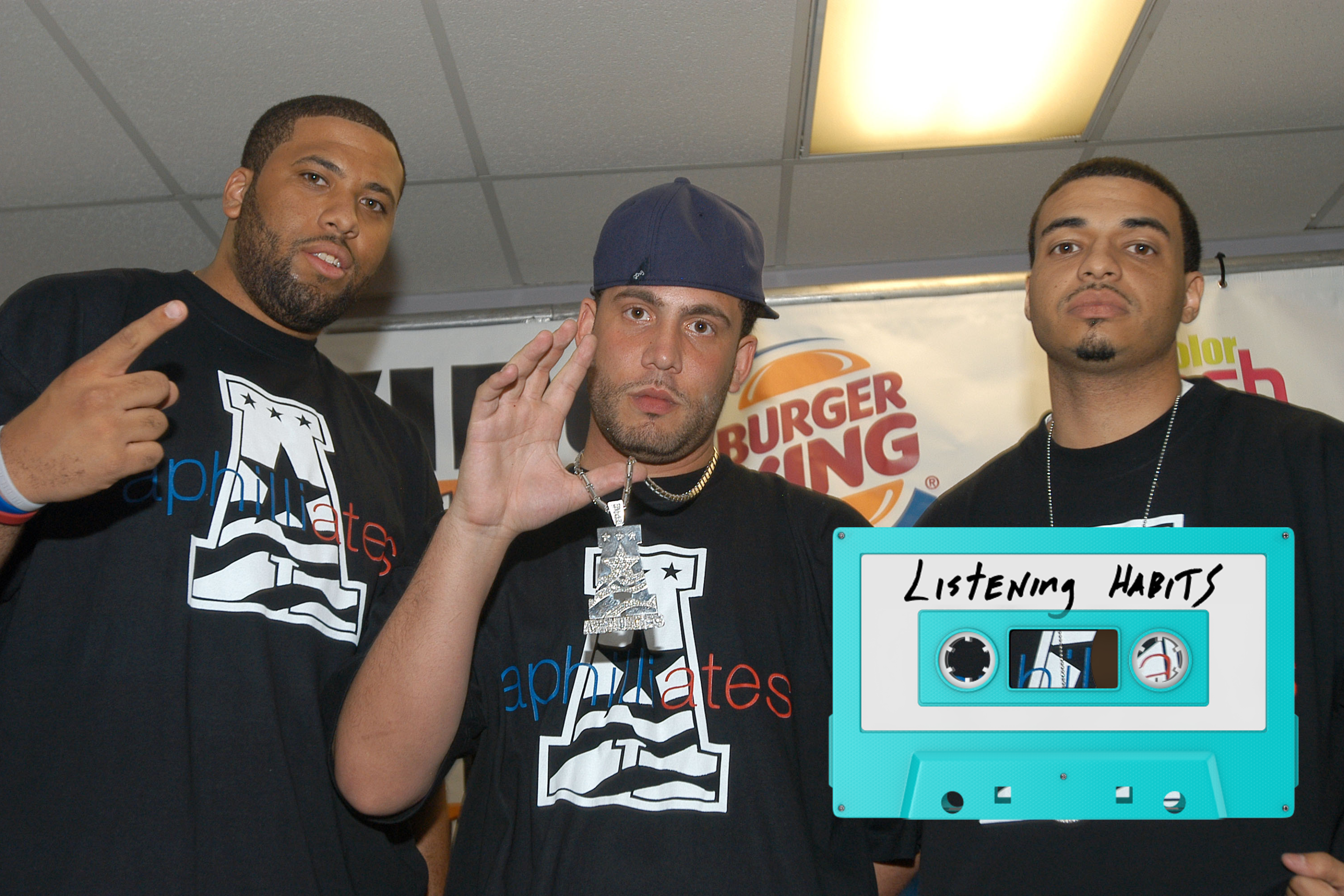Juan Soto is a Met. He deserves this enormous raise, for being one of the best players of this or any other generation. He also deserves this spotlight, for being insanely cool and charismatic, and also young enough to be the face of baseball for a length of time that will take many of the bloggers for this website into eligibility for full membership in AARP. This is a real planting-an-oak-seedling type of deal for Mets owner Steve Cohen, who is 68 years old: There's a very solid chance Cohen will be dead before Soto collects the final paycheck of this contract, which will arrive sometime in 2039. The deal does more than increase the chances of Cohen owning a world champion: It changes the meaning of the word "Mets." The Mets have been made.
Soto played the first four years of his career for a cheapskate middle-class baseball team, and then was dealt to a nouveau riche big-spending club. He spent last season playing for a true blue-blood, and now, like boats and private planes and beachfront property, he is finally relegated to the very most exclusive asset class, permanently out of reach for fans of teams whose owners refuse to spend the market rate for top players. It doesn't much matter what happens next: If the Mets bomb and Soto becomes expendable a third of the way into this deal, he will never ever ever play for the cheapies. Even if the Mets decided that some package of young hotshot prospects was worth a swap, they could not ever convince, say, the Lerners to pay Soto's salary.
Soto started his career playing for the Lerners, who own the Washington Nationals. As a fan of those Nationals, I dearly want to claim Soto as a spiritual Nat. He was a rookie here, and a first-time All-Star, and an MVP runner-up, and a World Series champion. Nationals fans loved him very much, although I think they never quite gave their hearts to Soto the way they did to Bryce Harper, Stephen Strasburg, Ryan Zimmerman, or even Max Scherzer. There are several reasons why this might've been the case, but the two most obvious ones are first that Nats fans had already watched enough top-tier hitting talent shuffle out of town to know that the Lerners would almost certainly lose their wallet at the worst possible moment, and second that he just wasn't a National for all that long a stretch of time.
Soto spent parts of five seasons in D.C. One of those seasons was his partial rookie year; another was shortened by the pandemic; another was shortened when the Lerners shipped Soto to San Diego, for prospects. Scherzer, who didn't join the Nationals until he was 30 years old, was with the team for most of seven seasons; Patrick Corbin, who was good for the Nationals for something like 40 total appearances, nevertheless showed up in a Nationals uniform for six complete seasons. Harper and Anthony Rendon were Nats for seven full seasons each; even Trea Turner was a National for a year longer than Soto. Soto was a more regular participant than several of these guys and was better than all but maybe one of them, but he has already somehow played more than a third of his career regular-season games not for the Washington Nationals. And he's still just 26 years old! By the time this contract runs out, he will have been not a National for three quarters of his career. His Hall of Fame bust will certainly not feature the curly W.
It has been pretty painful to watch the best Nationals players turn up on mega-deals elsewhere in the NL East. But I think the more painful experience, ultimately, is looking at a guy's page on Baseball Reference and having to confront the fact that in absolutely no meaningful sense is he any longer my emotional property. For a while I used to sneer at Phillies fans who, after spending seven years actively hating Bryce Harper, turned around and treated him as A True Philadelphian because their owner bought his services. To me this relationship was like one of those grody prenup-type marriages, whereas Harper's relationship to the Nationals and their fans was true, big-hearted, high-school sweetheart shit, a sincere you-always-remember-your-first kind of thing. Maybe it ended, maybe it had to end, but that was a sweet kind of tragedy, something imposed by a world that out of dumb pointless cruelty tends to squash beautiful vulnerable things.
But that's obviously insanely dumb. At the end of the 2025 baseball season Harper will have spent seven years in Philadelphia, and by the time his contract ends he will have been not a Nat and probably a Phillie for more than two-thirds of his professional career. The Phillies are his chosen family; the Nationals aren't even his biological one, they're like a crummy and neglectful foster family that he'd probably prefer to forget. The couple of trades of Soto—it remains incredible that he has already been traded twice in his seven-year career—put a longer tail on the feeling of Soto proprietorship, but his signing with the Mets presents the same sad finality as Harper's and Turner's in Philadelphia and Rendon's in Anaheim. Soto is no longer Our Guy floating around out there in the wider baseball world. Now he is a Met. Eventually, as a Nationals fan, I have to brace myself not to spend too much time going Umbrellas of Cherbourg mode about these things.
This is a big part of what sucks about being a supporter of the 25 or so MLB teams that are owned by the kinds of billionaires who are still out here coupon shopping. You get to love a player when he's a little hopeful goofball, and you dare to dream that everything will go right for your little guy, and then in those rare circumstances where everything does go right, the little guy moves on to become the face and heart and true emotional property of some other, competing outfit. The lesson is to care a little bit less, but that's not something any sports fan wants to learn. The cycle isn't unfair to anyone who matters—Soto deserves the money; the team that's willing to spend deserves the player and prestige; the teams that aren't willing to spend deserve to eat shit for eternity—but the sting for fans is acute, and real. Wishing for the best for Juan Soto, and for any next Juan Soto to come along, means wishing him away.






